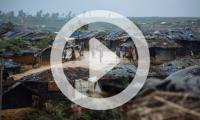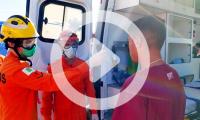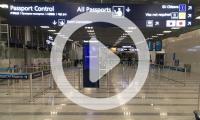International Organizations
Recent Activity

MPI and MPI Europe experts discuss the effects of the coronavirus pandemic on asylum systems in Europe and North America, as well as in developing regions, where 85 percent of refugees live. During this freeform conversation, our analysts also assess the implications for the principle of asylum and the future for a post-World War II humanitarian protection system that is under threat.

This MPI webinar brought together public health and migration experts to analyze the impact that COVID-19 preventative measures will have on vulnerable immigrants and refugees in Colombia and Latin America. Speakers also discussed how policymakers and international organizations can include migrant populations in their emergency response plans.

Amid debates about the costs and benefits of free movement, this webinar examines evidence from the REMINDER project on different types of East-West mobility. Speakers examine big-picture trends of East-West migration; consider possible policy responses at regional, national, and EU levels to alleviate challenges; and reflect on actions that could be taken under a new European Commission.

Responsables de políticos principales y partes interesadas de América Latina, así como representantes de instituciones internacionales claves, ofrecen sus puntos de vista sobre los desafíos futuros mientras gobiernos latinoamericanos buscan establecer las estrategias para responder a flujos migratorios forzados a gran escala, como los de Venezuela y Nicaragua.

Leading policymakers and key stakeholders from Latin America, as well as representatives of major international institutions, offer their views on the challenges ahead as Latin American governments seek to chart strategies for responding to large-scale forced migration flows, such as those from Venezuela and Nicaragua. Spanish and English versions of the remarks are available.
Pages
Recent Activity
Technically, people forced to move because of climate disasters are not considered “refugees.” But the UN High Commissioner for Refugees still takes climate issues into account, and since 2020 Andrew Harper has been its special advisor on climate action. In this episode of our Changing Climate, Changing Migration podcast, we talk with Harper about his agency’s role in responding to climate issues, which regions are most likely to be affected by climate impacts, and why climate is a “vulnerability multiplier” for refugees.
Los países de la región que se extiende desde Panamá hasta la frontera entre Estados Unidos y México enfrentan una importante oportunidad para fortalecer la cooperación en materia de migración. Este informe examina los pilares fundamentales que pueden sentar las bases de la cooperación regional. Además de evaluar la capacidad institucional, los marcos legales y las políticas migratorias, también identifica áreas clave en el desarrollo de capacidades.










